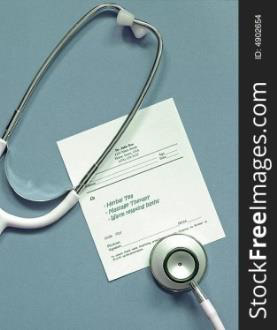


Joseph Anticaglia MD
Medical Advisory Board
Before you swallow that pill — Are you sure it’s the right one for you? Medication errors are more prevalent than you think. Errors can happen from the time a physician prescribes the medication to the time you pick up the medicine.
In Dr. Danielle Ofri’s book, When We Do Harm, the author discusses medical errors and what can be done to prevent them. She asks: “Is it true that preventable medical error is the third leading cause of death in the United States? Could there actually be as many as 98,000 deaths per year from medical error? Other studies suggest that Dr Ofri underestimates the number of deaths caused by such errors.

Many players are needed to get prescriptions to patients quickly and safely. The medical team includes doctors, nurses and their staff working inside and outside of doctor’s offices, hospitals, urgent care facilities and nursing homes. Other important members of the team are pharmacists and yes — You, the patient!
If any member of the medical team fumbles the ball in getting prescriptions or medications to patients, the consequences can be minor to lethal. There are examples of drugs being given to the wrong patient; e. g. cardiac patients receiving too much intravenous fluid, children and adults being given the wrong dose of medication and at the wrong time.
How can you personally improve outcomes for yourself, parents, grandparents or loved ones? Below is a partial checklist of outpatient steps patients, relatives or caretakers can take to prevent medication errors. Outpatient or ambulatory care is any treatment that does not require hospitalization.

Inpatient care requires individuals to be admitted to the hospital for treatment. At times, you need the assistance of other people, namely, relatives, friends or caretakers to minimize the risk of medication errors. Use some of the above checklist statements to navigate your hospital admission.
Causes of inpatient medication errors include:
Certain drugs are more likely to cause medication errors than others, such as intravenous antibiotics, antihistamine cold remedies, anticoagulants (blood thinners), insulins and opioid-containing painkillers.
Certain patients, on the other hand, are at a greater risk to experience medication errors; if they have reduced kidney or liver function, impaired cognition, comorbidities (two or more medical conditions) or use more than one pharmacy to get their medicines
Because the elderly often take two or more medications, they are more prone to adverse drug interactions. Also, hospitalized patients are particularly vulnerable to medical errors if the medications are administered by injection or intravenously.
If you’re an outpatient, you might find the checklist questions useful. If you’re in the hospital, you might politely ask the nurse or hospital doctor: "Pardon me. Before you pump that medicine into my vein, may
I ask you a few questions? Did my attending physician order that medication? What’s it called? Why do I need it? And do not hesitate to ask other questions you might have concerning your care.
You can help prevent medication errors by playing an active role in your health care team. You owe it to yourself and family to speak up!
This article is intended solely as a learning experience. Please consult your physician for diagnostic and treatment options.